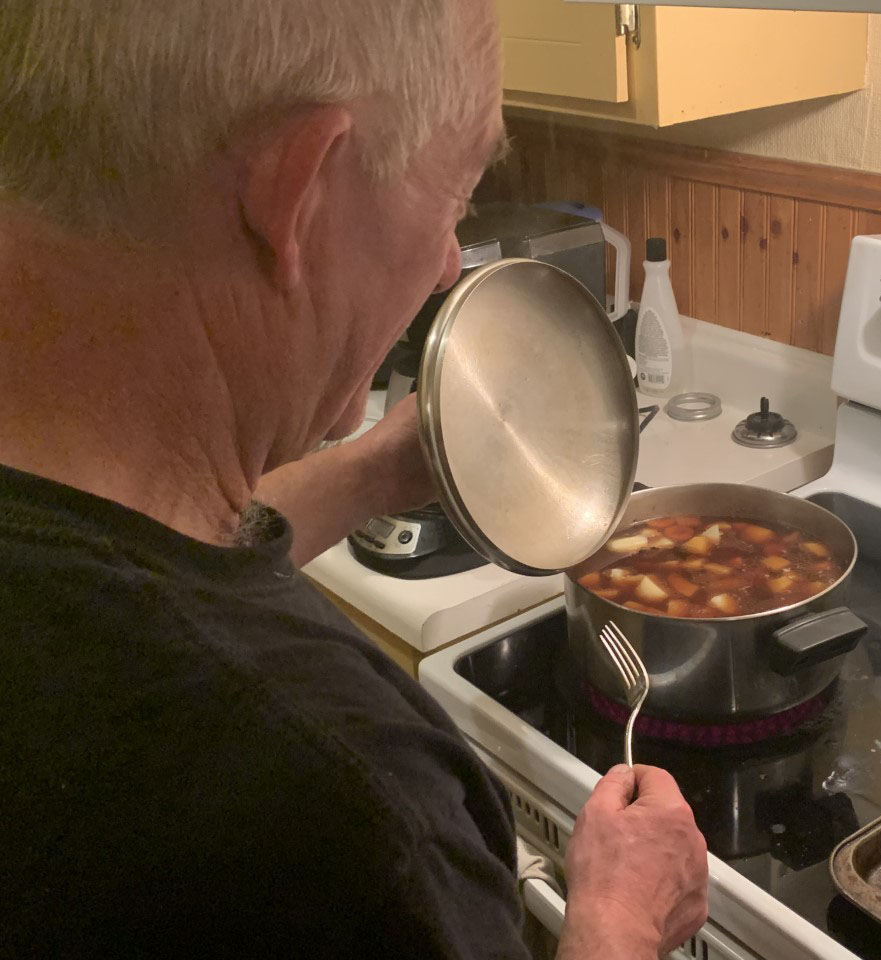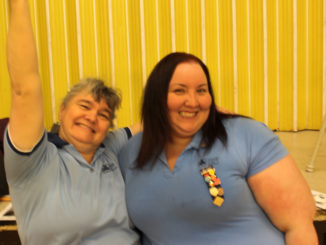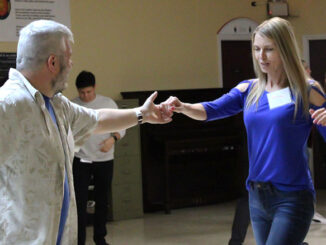A backhanded nickname, it has become a term of Newfoundland pride and culture.

Matt Hagerty
Kicker
The term bayman has meant many things to many people over the years. It describes where you’re from, but more importantly who you are.
Rick Dunne lives in Renews on the Southern Shore, the place he grew up in. For him, being a bayman is his culture and a way of life.
“A bayman is a jack of all trades,” said Dunne. “He’s a mechanic, a carpenter, a plumber, an electrician. We can do it all.”
That came out of necessity, says Dunne. When they were children, they didn’t have the same resources as someone in St. John’s. If a problem needed to be fixed, they had to do it themselves.
“I started fishing and working when I was eleven,” said Dunne. “Everything I learned, I learned from my father.”
Cathy Lynch also lives in Renews. She says bayman would come together and help each other, which is a huge part of being a bayman.
“We are more relaxed, more fun-loving,” said Lynch. “There’s always a crowd here, everyone’s welcome. That’s what it is to be a bayman.”
Part of the reason for that, Lynch says, are smaller populations in rural areas. Lynch lived in St. John’s for a year and says there were many people she didn’t know, which made her lose her level of comfort.
“I lived on a street and there were lots of kids there, but you knew nobody,” said Lynch. “My kid knew a couple of kids from school. Other than that, I didn’t know anybody on the street and I lived there for 12 months.”
Many of these descriptions overlap when you ask for people’s definition of a bayman. Another aspect is geography. Many would consider a bayman someone who lives around the bay. The opposite would be a townie, which is someone who lives in or around St. John’s or another major city centre.
“A bayman is a jack of all trades. He’s a mechanic, a carpenter, a plumber, an electrician. We can do it all.”
This part of the definition has been up for debate for a while. Growing populations in suburban areas close to St. John’s like Conception Bay South and the Goulds have made the distinction between townies and bayman tough.
Darcy O’Brien grew up in CBS and experienced this grey area first-hand. He says he wouldn’t identify as either a bayman nor a townie, but more as a “mishmash of the two.”
“Yeah, you could say (the term) bayman could be negative,” said O’Brien. “Some may say that stereotypical bayman aren’t as smart or you can’t understand a bayman. But a bayman could be just as smart as anyone.”
Dunne knows the negatives that are associated with the phrase, but simply brushes them off. The skills he learned growing up he says, in some ways are more important than what he learned in school because they help him in everyday life.
“There isn’t a thing in this house I haven’t touched,” said Dunne. “The plumbing, the roof. I did it all.”
These skills are getting harder to find in people says Dunne, since you can just hire somebody to do repairs for you in most places.
“I wouldn’t really react (negatively) to someone calling me a bayman, but I would react to someone calling me a townie ’cause I’m not from St. John’s, I’m from CBS.”
O’Brien may think he is a combination of bayman and townie, but if you try and peg him as one or the other, he leans a certain way.
“I wouldn’t really react (negatively) to someone calling me a bayman, but I would react to someone calling me a townie ’cause I’m not from St. John’s, I’m from CBS,” said O’Brien. “By being a bayman you embrace the Newfoundland culture more, whereas being a townie you are a bit more modernized or more proper. By being a bayman you have more of those old traditional Newfoundland values.”
For O’Brien, the term defines a way of life that is slowly fading away as populations shift and Newfoundland’s culture creeps towards the future.
Dunne thinks these changes are necessary, but hopes parts of Newfoundland’s heritage isn’t lost in the process.
“For me, being a bayman isn’t where you are from,” said Dunne. “It’s how you were raised.”




Be the first to comment